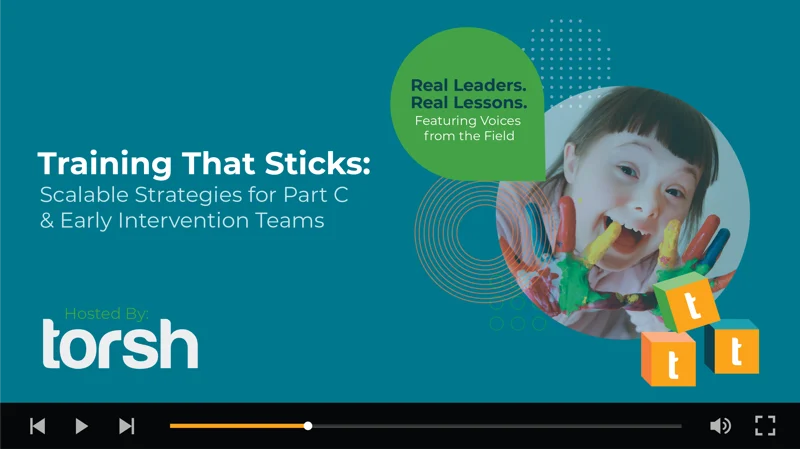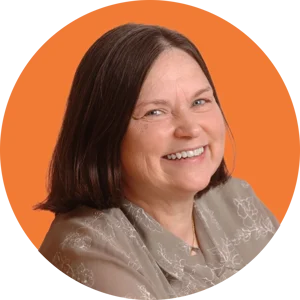[On-Demand Webinar] Training That Sticks: Scalable Strategies for Part C & Early Intervention Teams

A Peek Into Our Discussion

A collaborative, solutions-driven conversation with Part C leaders and early intervention experts on building stronger, more compliant, and more sustainable systems. Arkansas will share how they scaled certification and PD from 30 to 235+ completions annually while addressing provider shortages. Florida’s Jessica Meyer will highlight how a statewide coaching model and HIPAA-compliant data practices strengthen compliance and retention. Florida State University’s Kat Cripe and Juliann Woods will add a multi-state and research-based perspective on fidelity, sustainability, and outcomes.
This panel-style session is designed to give early intervention leaders practical strategies for tackling provider shortages, aligning PD and coaching with compliance, and building systems that deliver measurable improvements for children and families.
A collaborative, solutions-driven conversation with Part C leaders and early intervention experts on building stronger, more compliant, and more sustainable systems. Arkansas’s Ravyn Hawkins will share how she scaled certification and PD from 30 to 235+ completions annually while addressing provider shortages. Florida’s Jessica Meyer will highlight how a statewide coaching model and HIPAA-compliant data practices strengthen compliance and retention. Florida State University’s Kat Cripe and Juliann Woods will add a multi-state and research-based perspective on fidelity, sustainability, and outcomes.
This panel-style session is designed to give early intervention leaders practical strategies for tackling provider shortages, aligning PD and coaching with compliance, and building systems that deliver measurable improvements for children and families.
Meet Your Panelists
Meet the leaders who know exactly what it’s like to juggle compliance requirements, provider needs, and the realities of service delivery. They’ve reimagined training in ways that are practical, scalable, and sustainable. In this session, they’ll share what worked, what didn’t, and how you can apply those lessons in your own program.

Katrina Cripe, Center Coordinator at Florida State University
Katrina Cripe serves as the Coordinator for the Communication and Early Childhood Research and Practice (CEC-RAP) Center at Florida State University. She also leads technology systems and project management for multiple state-funded early intervention contracts. Her specialties lie in pioneering and evaluating technology-based coaching programs—such as video-observation platforms—to enhance fidelity in Family-Guided Routines-Based Intervention (FGRBI). Her work focuses on training early intervention providers and internal coaches to sustain evidence-based practices across state systems.

Juliann J. Woods, Professor Emeritus, School of Communication Science and Disorders
Florida State University
Dr. Juliann Woods is Associate Director for Research to Practice at the Autism Institute within the Florida State University College of Medicine and serves as Professor Emerita in Communication Science and Disorders at FSU. Over the course of more than 40 years, she has built a distinguished career dedicated to designing and directing early communication and early intervention research, translating findings into practice. Juliann has led more than 50 externally funded training and demonstration projects nationwide and continues to focus on bridging research and real-world application in early intervention systems.

Jessica Meyer, Part C Coordinator / Early Steps Program Administrator
Jessica Meyer leads Florida’s Early Steps Program as the State Part C Coordinator within the Department of Health. In her role, she oversees policy implementation, statewide system design, and provider support to ensure early intervention services meet the needs of infants, toddlers, and families. With a focus on building capacity and consistency, Jessica works on aligning service delivery with compliance expectations, enhancing training infrastructure, and improving outcomes across Florida’s diverse communities.



